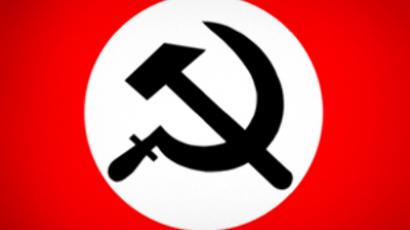Holocaust crimes equated to Communists’ actions
Hungary has passed a new law equating Communist era crimes to those of the Holocaust.
People who deny, cast doubt over or trivialize the repressions arranged by the Soviet-backed regime, could now face up to three years in jail.
But the comparison of the two historical periods obviously has faced criticism.
For instance, 92-year old Ishtvan Tatar, a Holocaust survivor, often comes to the Holocaust museum in Budapest, saying he wants to remind himself of what he went through. It happened six decades ago but he can still remember the horror.
Tatar recalls how the Nazis dragged him out of his home into the living hell of a concentration camp.
“I was told to draw a Star of David on my forehead and was sent to work,” Tatar remembered. “Then they threw me on the frontline, where I had to bury their dead. I was barely alive when Red Army soldiers liberated our camp on the border of Slovakia.”
Over 600,000 Jews in Hungary were deported from the country after fascists occupied it in 1944. Many of them later died in Nazi death camps. One of Europe’s largest Holocaust memorials in Budapest serves to commemorate the tragedy. But in Hungary’s capital there’s another notable exhibit – with a different purpose.
In 1944 a building in Budapest was the headquarters of the German secret police. After the Nazis were kicked out of the country, it was occupied by the KGB. Now it is called a museum of terror and depicts the hardships which the Hungarian nation went through.
Its main mission is to tell the story of communist repressions in the years Hungary was a part of the Warsaw pact. The strain was eased after Budapest rebelled against Soviet control in 1956 and Moscow loosened its grip on Hungary. At times, it was even called the most liberal part of the socialist empire. However, the museum’s director sees no difference between Nazi occupation and the communist period.
"Very similar regimes, very brutal against humanity, against freedom and dignity of the people,” said Dr Maria Schmidt, director of House of Terror Museum. “You cannot say which evil is more harmful."
In a recently enacted law, the parliament equated the two periods of the country’s history. Now, anyone denying the holocaust or crimes of the communists could face a punishment of up to 3 years in prison.
''I think that the history of former socialist countries is full of great achievements and it contains also problems, mistakes and errors,” said Dr Gyula Thurmer from the Labor Communist Party of Hungary. “We shouldn't repeat mistakes and errors, but we shouldn’t live all the time by remembering these mistakes and these errors. This new law serves the aim to clean the crimes of the Hungarian fascism before WWII and to liquidate the Communist movement in Europe and in Hungary and, generally, the workers’ movement.''
The Director of the Holocaust museum, Dr. Laszlo Harshany, says any crime is a crime, but believes that this kind of approach to history is unacceptable.
“It’s not humane from both a historic and humanitarian points of view,” Harshany told RT. “The Nazis had a conveyor-belt, destroying everyone of a different race and religion. The Communists persecuted only those who were different in ideology. And the Holocaust caused many more deaths – nothing to be compared or even equated with.”
Supporters of the new law say its main aim is to completely bury what many describe as the dark past. Its critics say that without liberation from fascism, its present would have been much grimmer. But many agree – it is more of a political gesture among the country’s political forces, as it’s hard to see any practical need for this law and who in modern-day Hungary would violate it.













